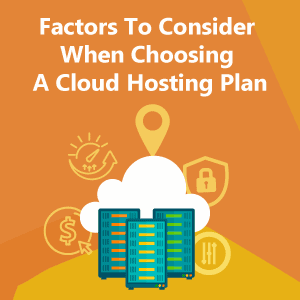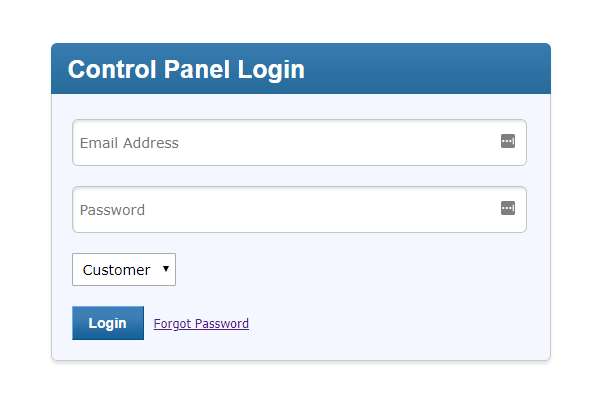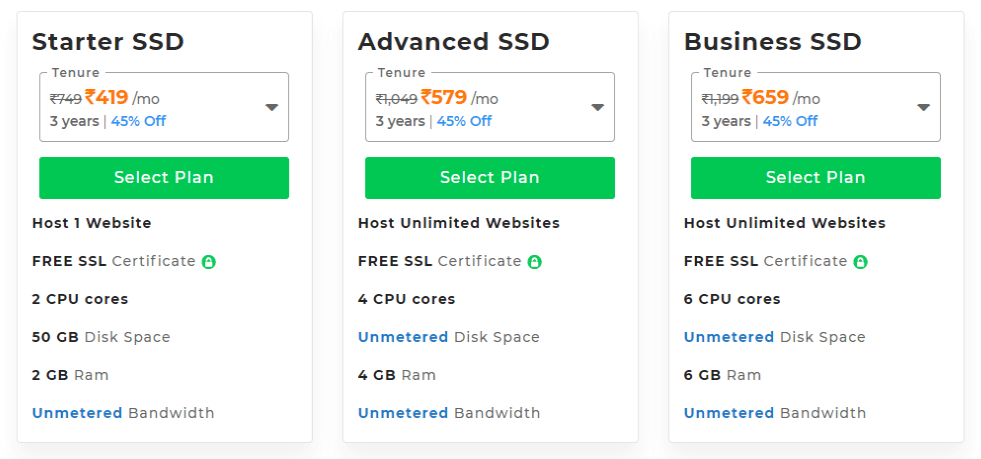 A growing number of companies and businesses are making a switch to Cloud computing as it offers great storage and any issue with the hardware is resolved by the hosting provider. It’s an efficient hosting solution that is quicker than you think, especially when compared to Shared hosting. Read this article on Cloud hosting vs Shared hosting to know more.
A growing number of companies and businesses are making a switch to Cloud computing as it offers great storage and any issue with the hardware is resolved by the hosting provider. It’s an efficient hosting solution that is quicker than you think, especially when compared to Shared hosting. Read this article on Cloud hosting vs Shared hosting to know more.
As the resources within the Cloud are spread across several servers, the data can be accessed at any time. The resources in the Cloud also adjust according to the need of your website, so you don’t have to pay extra. It also offers easy accessibility, so the benefits of Cloud hosting are many.
If you are planning to buy a new Cloud hosting plan, then you must keep these 10 factors in mind. Click here to buy Cloud hosting today!
Why Choose Cloud Hosting?
With website speed being considered as a ranking factor, purchasing premium web hosting for your website is of utmost importance. VPS and Dedicated hosting can be expensive for a small business while Shared hosting can affect your site’s performance if the hosting server is over-crowded. Thus, here a middle path you can choose for better site performance at an economical price is Cloud hosting. So, if you want to purchase Cloud hosting, then here are a few factors that you should consider.
Further reading: Difference Between Cloud Hosting and VPS Hosting
Factors To Consider When Choosing A Cloud Hosting Plan
1. Backup
You can't completely rely on applications and technology as at times it can fail. It is important to have a good backup for your site so if your system or server crashes due to any reason you'll be able to restore your site without any issue.
Before you sign up for a Cloud hosting service, you should know how the backup process works and how much data you need to back each day.
You need to know the amount of data and what kind of data restoration process works on the Cloud. You also need to make sure that the data of your company is securely backed up with a reliable recovery plan.
Further reading: How to Backup a WordPress Site
2. Service Level Agreement
SLA or service level agreement refers to a document that contains terms and service standards. If you choose a generic hosting plan, then you get the standard SLA that has to be signed by you and the Cloud service provider.
If you choose a custom plan, you’ll have to ask the provider to prepare customized terms and service agreements. You need to read the document carefully as it will define the service you’re entitled to receive along with the liability of the provider.
This agreement comes in handy when the the hosting provider fails to provide the previously mentioned services. You need to evaluate the SLA before deciding to go ahead with the Cloud hosting provider.
Read this BigRock hosting review to know what SLA is offered by BigRock with its hosting plans.
3. Atom Payment Gateway
When you choose a Cloud hosting service, you should consider different parameters of security and infrastructure design. There are three main aspects to consider - high-performance computing, data centre set-up, and multi-layer security.
High-performance computing ensures that heavy applications and several users can work on the same server at the same time. If HPC is deployed in Cloud architecture, you won't face any performance glitches.
Having a Cloud provider with multiple data centres will help in the event of a disaster as you can still avail the services from the data centre that is located elsewhere.
You need to consider multi-layer security if there is a large amount of data involved. Do check if the security provider has all the security measures in place like - data encryption, multi-factor authentication, access control system, intrusion detection & prevention system, and a firewall.
4. Support
Involvement of IT issues or website configurations make support availability a necessary consideration in deciding a suitable Cloud hosting provider. Some hosting companies offer support based on specific issues or working hours.
Customer support is imperative to resolve queries and issues that users of Cloud services face from time-to-time.
The customer support can be offered over chat, email, or phone. It also depends on the hosting plan you choose. For multiple users and heavy business dependency, it’s better to choose a hosting provider that offers 24/7 customer support.
Read this hosting comparison articles to know what type of customer support is offered by different hosting provider.
5. Business Continuity & Disaster Recovery
A disaster can be uncertain to predict. BCDR or business continuity & disaster recovery indicate service providers' ability to restore the hosting service after destruction due to any unforeseen event.
It should be able to identify the different types of risks that can hamper the business processes and also define procedures to mitigate them.
Redundancy of infrastructure and replication of data at various points are some factors that reflect BCDR standards of the Cloud-hosting providers. There is no charge for this service as it is an essential feature of a Cloud hosting service.
6. Transition Process
Set-up of Cloud applications and migration of data on the Cloud are some important services that your hosting provider will offer you without any added charges.
Data migration ensures there is no data loss when you switch from an existing hosting plan to a Cloud hosting platform.
Without the help of a hosting provider, you’ll have to deploy your team for the process of migration. So compare different Cloud hosting providers before you finalize the plan. Here are a few more hosting reviews that you can read.
7. Viability
When you consider a Cloud web hosting plan, consider the financial stability of the Cloud service providers. As many web hosting providers in the market are new to Cloud computing, you need to look at all the plans they offer.
Your website needs a reliable expert with years of experience. Read testimonials and look for reviews before you narrow down on a plan.
8. Uptime Guarantee and Scalability
Uptime is the duration of service that a Cloud hosting provider guarantees to deliver. Uptime should be more than 99.9% as that’ll guarantee good results for the site. However, disruption of services due to maintenance and upgrades is a normal process and is acceptable.
Scalability needs to be evaluated through different points such as data warehouse, bandwidth, and server. You need to know that will they be able to support your website needs as your business grows.
BigRock provides both great uptime and scalability, so make use of these BigRock hosting coupons to buy a Cloud hosting plan
9. User-friendly Control Panel and Private Server Support
The control panel should have a user-friendly interface so that you get time to focus on your business. Control panel also saves your time so that you don't have to figure out things that require technical support.
Most businesses require private server support as it involves confidential data. You also need to choose a server based on the resources, applications, and the number of users you want to work with. For all these needs, it is best to choose a service provider with custom Cloud solutions.
10. Pricing
Low-cost Cloud hosting plans may look enticing, but they may not offer optimum performance & features. Likewise, there is no guarantee that expensive plans are better. You can always compare to know which one is the best.
Pricing plans should be flexible and provide features & services you need to run your website. So, pick a plan that safeguards your site data and meets your requirements.
In Brief,
Choosing the best Cloud hosting plan requires more than just visiting the service provider's website. If you're looking to find the right scalable hosting plan for your business other than a dedicated hosting, then look for a provider that offers you virtualized infrastructure.
It should provide complete flexibility and drive operational efficiencies. Whether you are in the process of migration or you're looking to buy a new Cloud plan, consider all the above factors to make an informed choice.










Leave a Reply